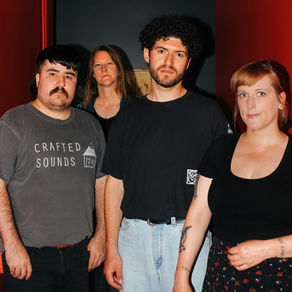The Low End Theory
- BLIGATORY
- Oct 14, 2022
- 3 min read
Updated: Jun 18, 2023
by A Tribe Called Quest

Released September 21, 1991 via Jive Records
Reviewed September 23, 2021
Top tracks (based on community voting)
Jazz (We’ve Got) (53%), Scenario (49%), Buggin’ Out (38%)
A Tribe Called Quest’s second studio album commenced a sea of change for the hip-hop landscape; jazz samples and a more vibe-centric atmosphere formed a new wave. The Low End Theory was a mission statement for the next generation, signaling a more personal approach to the bubbling hip-hop scene. Using smoked out flows, Phife Dawg and Q-Tip managed to create some of the most infectious verses on record, showing a nice middle ground between style and substance. 30 years later, The Low End Theory still feels refreshing, despite the numerous copy cats that followed. – Jared (10/10)
Seemingly 30 years ahead of its time, A Tribe Called Quest’s second album, The Low End Theory, is now 30 years old itself. Using distinct influence from traditional jazz music, the group’s magnum opus is still as revered and cherished as it was the week it dropped. Exploring the grim reality of being a Black man in the early 90’s in Queens, New York, the commentary that spills out the mouths of both Q-Tip and Phife is as poignant as ever in 2021. The Low End Theory is one of the smoothest, lowkey projects to be put out, yet it had so much to say. The way Q-Tip and Phife Dawg were able to exude fluidity and effortless connection is one that has had difficulty being recreated in rap. Unlike a lot of their jazz-rap contemporaries, ATCQ released an album to break from their sub-genre and provide one of the most important hip-hop albums without a single ounce of aggression but a whole lot of gumption and coolness. – Pablo 10/10
Who got the jazz? We got the jazz. A Tribe Called Quest's second album, The Low End Theory is now 30 years old; 30 years of a hip-hop cornerstone in production, sheer vibes and foggy influence. The Low End Theory is tied together in a haze. The smoked-out jazz club atmosphere wraps the material together with a buttery ribbon. Like many groups of the late 80s and early 90s, Tribe pushed forward jazzy sounds and overall feel—however, they stand alone in their own spacious world. Hailing from Queens, Tribe embodies New York's rough and rugged spirit, though their music is topped with etiquette and respect for the fellow man and musician. The Low End Theory is a political statement about the status of the Black Man in society, and holds a firm place in the annals of hip hop. Rap is not Pop, if you call it that then stop. – Peter (9/10)
Butter smooth is the mantra of A Tribe Called Quest's most iconic and influential album. The Low End Theory is a highly creative success, revered across commercial, critical, and cultural lines. At every step, Q-Tip, Phife Dawg, and Ali Shaheed Muhammad remain ahead of the curve, partnering up to bring the height of their synergy to unseen levels. With the lyrical content, chemistry, and dynamic atmosphere in such ideal balance, it's apparent why The Low End Theory has triumphed in every decade since its release. While a debate could be held about which Tribe album is their best, it's hard to obscure the incredible legacy and influence that The Low End Theory carries, as it truly represents every aspect of what great 90s hip-hop was accomplishing at the time. – DeVán (8.8/10)
The Low End Theory acts as one of the shepherds of 90s hip hop, ushering in a sound that heavily diverted from an in-your-face attitude that saturated the late 80s. A Tribe Called Quest had already made their presence felt with their debut record, People’s Instinctive Travels and the Paths of Rhythm, but their sophomore release made it clear thatQ-Tip and Phife Dawg weren’t just MCs; they were the new leaders of a genre that had finally returned to its roots in jazz. Without an ounce of aggression, the duo meanders their way through the smoothest of instrumentals, with The Low End Theory acting as a manifesto for addressing society’s shortcomings subtly. The delivery could be a bit more eloquent, but the instrumentals carry a weight that allows any flaws to brush past the listener quite effortlessly. No matter how much time has passed, The Low End Theory could never be forgotten, as authenticity like this will always be timeless – Ben (Synth) (8/10)
Jared: 10/10 | Pablo: 10/10 | Dominick: 9.4/10 | Pax: 9.1/10 | Peter: 9/10
Cam: 8.8/10 | DeVán: 8.8/10 | Alan: 8.6/10 | Ben (Synth): 8/10






